Hi there, pet lovers! 🐦
Toucans are among the most striking and exotic birds in the world, admired for their oversized, colorful bills and lively personalities. Native to Central and South America, these birds are intelligent, active, and social, making them an appealing choice for bird enthusiasts seeking a truly unique companion. However, owning a toucan is not as simple as bringing home a parakeet or canary — they require specialized care, significant space, and a strong commitment from their owners.
In this comprehensive review, we will explore everything you need to know about keeping toucans as pets, including their temperament, dietary needs, housing requirements, health considerations, availability, and cost. This guide will help potential owners understand whether a toucan is the right pet to bring into their lives.
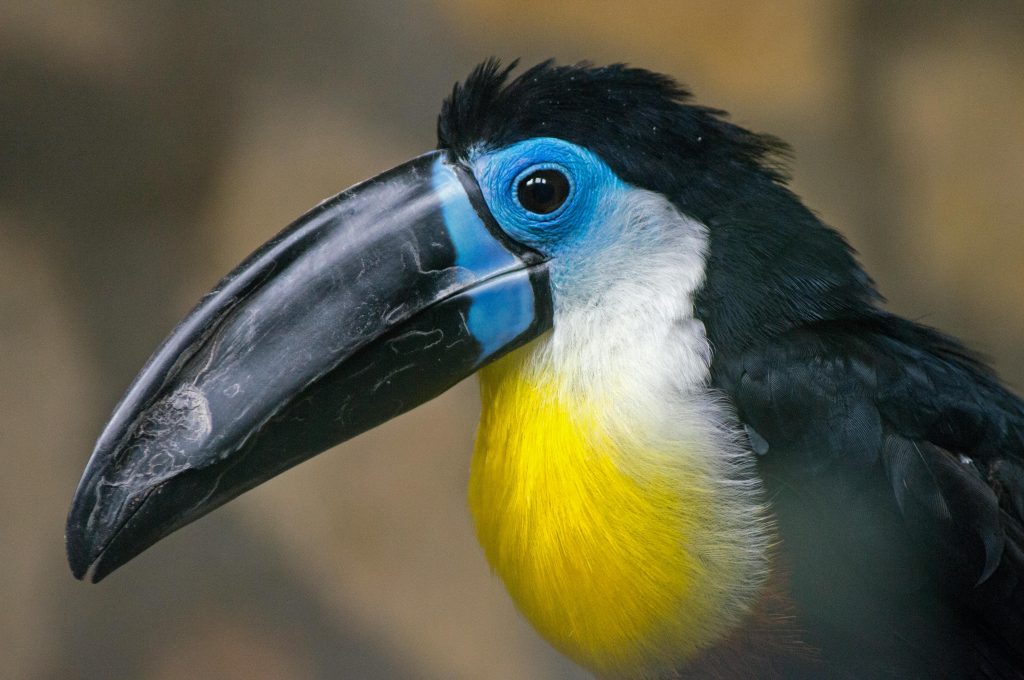
Overview
Toucans are medium-to-large-sized birds native to the tropical rainforests of Central and South America. Known for their vibrant bills and playful personalities, they are intelligent, interactive, and curious animals that thrive on attention and space to explore. Unlike parrots, toucans are relatively quiet, but they have specific needs that make them more challenging to keep. Here’s a quick summary of what makes them stand out:
- Handling and Temperament: Social, playful, and curious but require daily interaction.
- Care and Maintenance: Demanding — need large enclosures, enrichment, and a specialized diet.
- Health and Durability: Sensitive digestive systems; prone to certain conditions without proper care.
- Availability: Rare and highly regulated, usually sourced through breeders or specialized facilities.
- Cost: Very expensive, both in purchase price and ongoing care.
- Overall: A fascinating but demanding pet best suited for experienced bird owners with the resources to meet their needs.
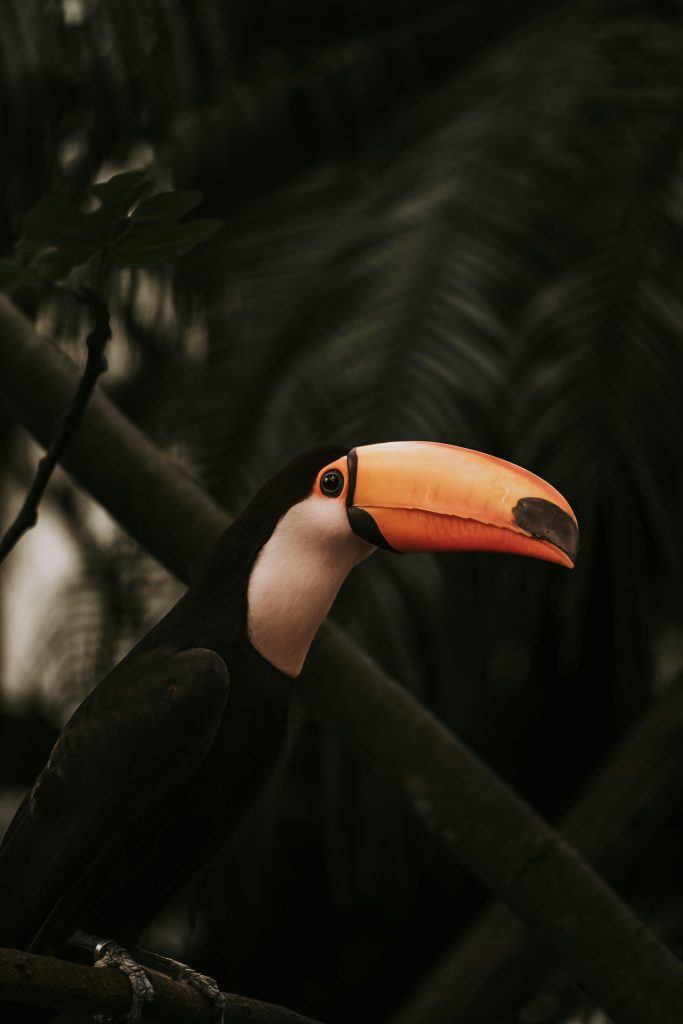
Why Choose a Toucan?
Toucans are captivating birds that stand out from other avian companions. Their colorful bills, which can make up nearly one-third of their body length, are surprisingly lightweight and serve as tools for reaching fruit, regulating temperature, and even courtship displays.
These birds are extremely interactive, forming close bonds with their caregivers. Unlike many parrots, toucans are not known for screaming excessively or being destructive with their beaks, but they are highly energetic and require constant stimulation. Their intelligence means they can quickly learn routines, play games, and interact with enrichment activities.
However, their exotic nature means they are not suitable for everyone. Toucans demand significant space, specialized diets, and constant attention to their health and environment. They are best suited for owners who have prior experience with large birds and are prepared for a long-term, resource-intensive commitment.
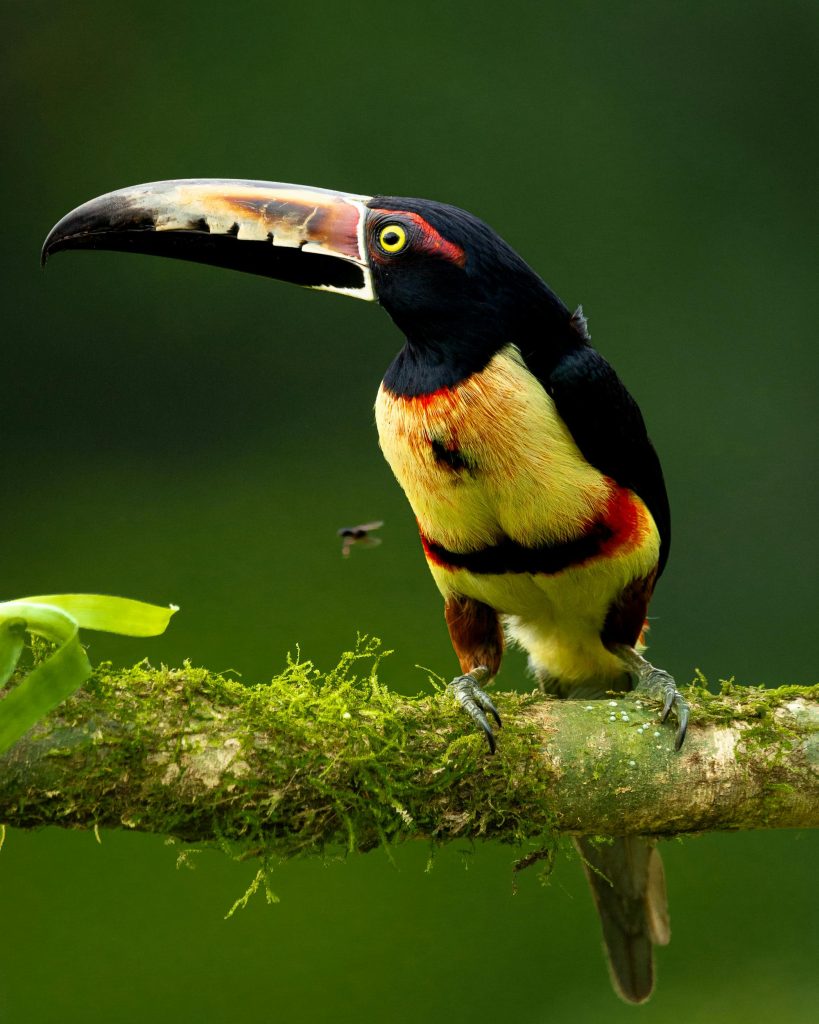
Handling and Temperament
Toucans are social, curious, and playful birds that thrive when they are included in daily household activities. They are known to be affectionate with their human companions, often hopping onto shoulders, playing with objects, or following their owners around.
Personality Traits
- Social: Toucans generally enjoy interaction and can become depressed or anxious if left alone for long periods.
- Playful: These birds love toys, puzzles, and enrichment activities that challenge their minds.
- Curious: They are constantly exploring their environment and investigating new objects.
- Affectionate but Independent: While they enjoy interaction, they are less demanding of constant cuddling compared to some parrots.
Handling Tips
- Always handle toucans gently, allowing them to perch or hop freely rather than restraining them.
- Ensure any playtime outside the enclosure is supervised to prevent injury or escape.
- Early socialization helps reduce shyness and builds trust with caregivers.
Vocalization
Toucans are generally quieter than parrots, but they are not silent. They make a variety of croaking, clicking, or yelping sounds. While not ear-piercing, these sounds can still be disruptive in small living spaces.
Overall, toucans are engaging companions, but they require consistent interaction and a stimulating environment to remain happy and healthy.
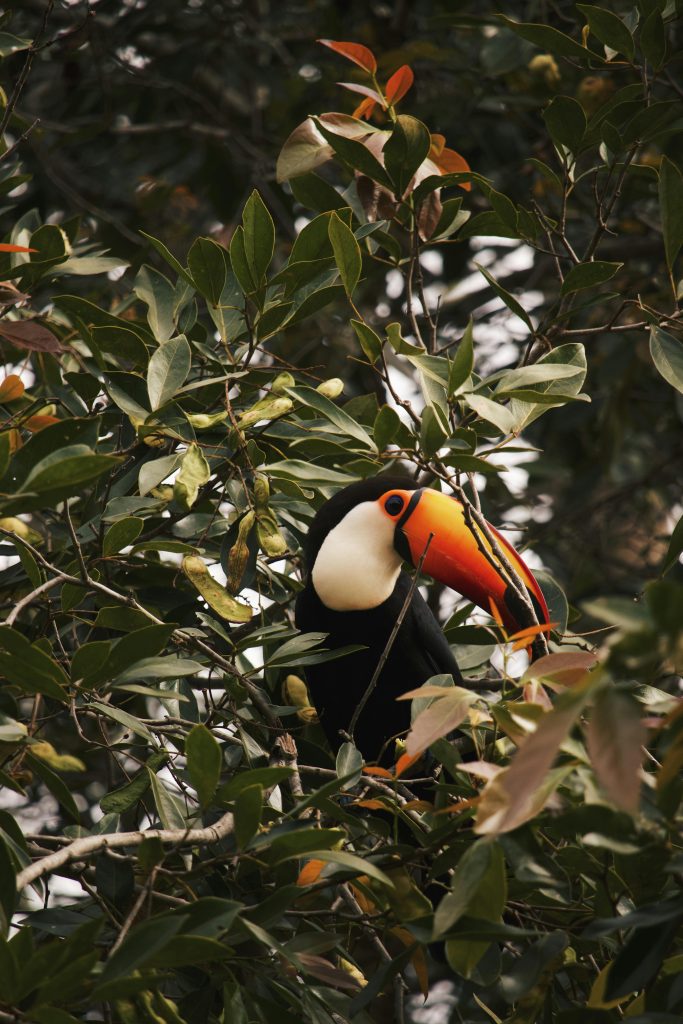
Care and Maintenance
Toucans have specialized care requirements that go beyond those of most pet birds. Their large size, active nature, and unique dietary needs must all be considered before bringing one home.
Enclosure Setup
- Size: Toucans need large aviaries. A minimum of 8 feet long, 4 feet wide, and 6 feet high is recommended for smaller species like the aracari, while larger toucan species require even more space.
- Perches and Climbing Space: Provide multiple branches, perches, and climbing areas. Horizontal space is especially important, as they prefer hopping and flying short distances rather than climbing vertically.
- Toys and Enrichment: Rotate toys regularly to keep them engaged. Foraging toys and puzzle feeders are highly recommended.
- Safety: Avoid small cage bars; toucans can injure their bills trying to squeeze through.
Diet
Toucans are frugivores, meaning the majority of their diet consists of fruit. However, their digestive systems are sensitive to iron, which means they must be fed carefully to avoid iron storage disease (hemochromatosis).
- Fruits: Safe options include papaya, blueberries, bananas, melons, pears, and grapes.
- Avoid: Citrus fruits and iron-rich foods, as they can cause health problems.
- Commercial Diets: Specialized low-iron pelleted diets designed for toucans should form part of their daily intake.
- Feeding Schedule: Small portions multiple times per day help mimic their natural foraging behavior.
Lighting and Environment
- Toucans benefit from natural sunlight or full-spectrum lighting to regulate their biological rhythms.
- Their enclosure should be kept at a comfortable room temperature (65–80°F).
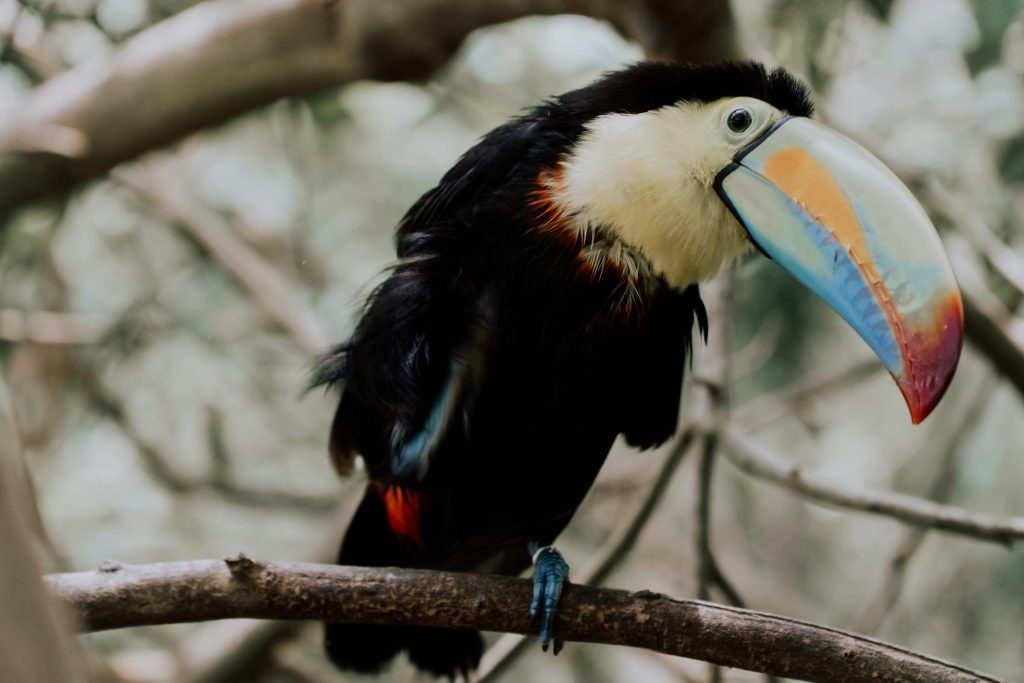
Health and Durability
Toucans are generally hardy birds when cared for properly, but their health is closely tied to their diet and environment.
Common Health Issues
- Iron Storage Disease: The most serious condition affecting toucans. Prevented through strict low-iron diets.
- Obesity: Caused by overfeeding sugary fruits without balancing their diet.
- Stress-Related Issues: Lack of space, stimulation, or social interaction can lead to feather plucking and behavioral problems.
- Injuries: Their bills, while strong, are lightweight and can be damaged if they collide with hard surfaces.
Preventative Care
- Provide a balanced, low-iron diet.
- Schedule regular veterinary checkups with an avian specialist.
- Offer enrichment to prevent boredom and destructive behaviors.
- Ensure proper housing that allows exercise and reduces stress.
With attentive care, toucans can live 15–20 years, though some smaller species may live slightly shorter lives in captivity.
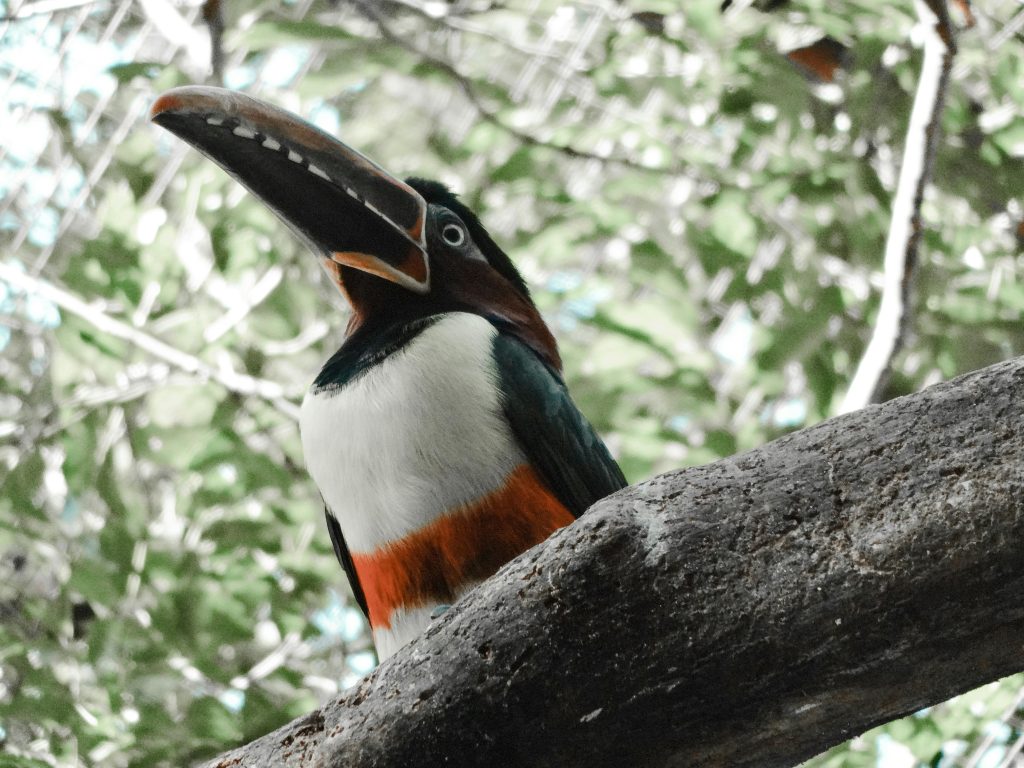
Availability and Cost
Toucans are not commonly found in pet stores and are highly regulated in many regions.
Where to Buy
- Breeders: Reputable breeders are the best source for hand-raised toucans.
- Specialized Facilities: Some exotic bird rescues and sanctuaries may occasionally have toucans available.
- Legal Considerations: Permits may be required in certain states or countries. Always verify local regulations before purchasing.
Cost
- Purchase Price: Small species such as aracaris may cost $8,000–$10,000, while larger toucans can cost $10,000–$15,000 or more.
- Setup Cost: A proper aviary setup can cost $2,000–$5,000 depending on size and materials.
- Ongoing Care: Fresh fruit, specialized diets, toys, and veterinary care can easily amount to several thousand dollars annually.
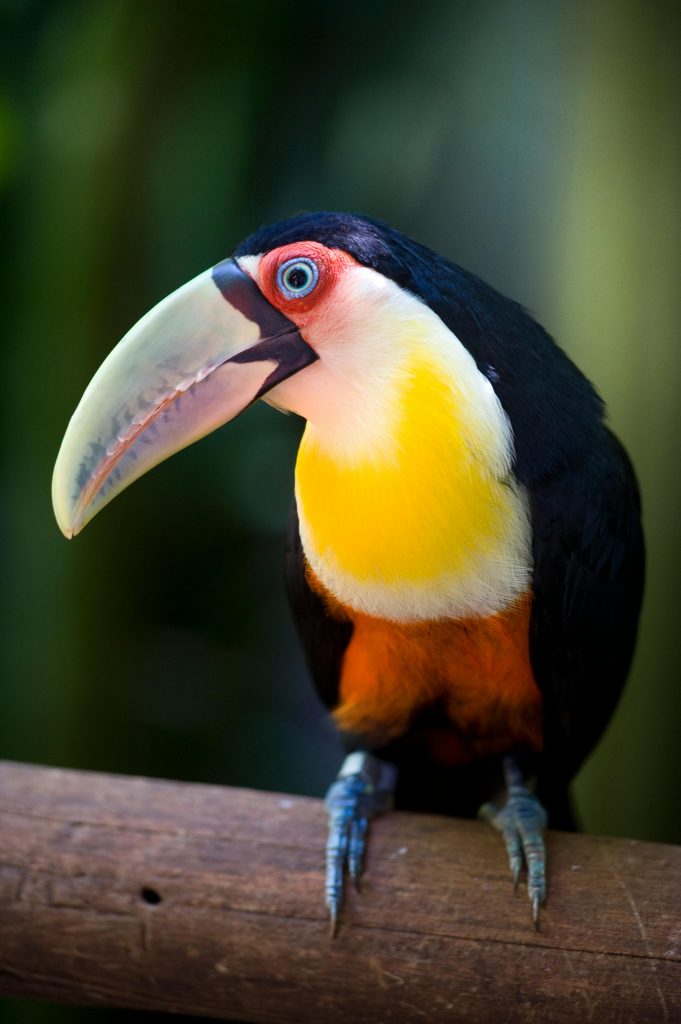
Pros and Cons
Pros
- Stunning appearance with vibrant colors.
- Social, interactive, and intelligent.
- Relatively quiet compared to parrots.
- Long lifespan with proper care.
- Less destructive with their beaks than many parrots.
Cons
- Extremely expensive to purchase and maintain.
- Require very large enclosures and daily enrichment.
- Specialized low-iron diet is mandatory.
- Sensitive health; prone to iron storage disease.
- Rare availability and legal restrictions in some areas.
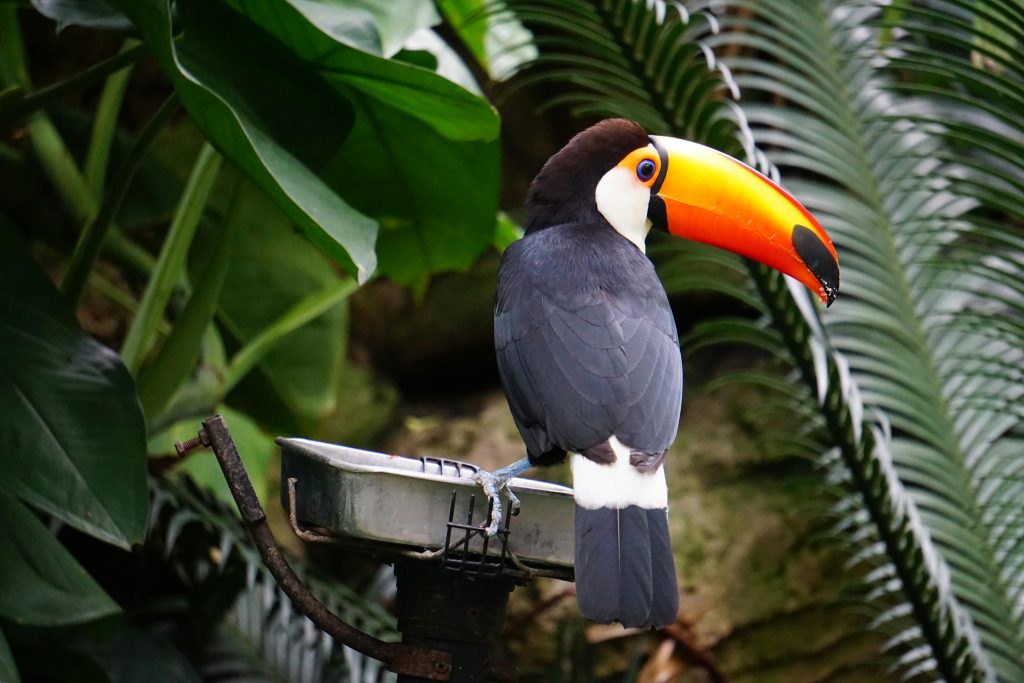
Final Thoughts
Toucans are among the most breathtaking and fascinating birds that can be kept as pets. Their intelligence, playfulness, and striking beauty make them captivating companions, but they are also among the most challenging and resource-intensive birds to own.
They require large enclosures, specialized diets, and a high level of daily interaction, making them best suited for highly experienced bird owners with both the financial means and the dedication to provide lifelong care.
For those who can meet their needs, toucans offer an extraordinary pet experience unlike any other. However, for most households, their demanding requirements mean they are better admired in aviaries, conservation centers, or in their natural rainforest homes.
Have you ever encountered a toucan in person? Share your experience and impressions in the comments below! We’d love to hear what makes these birds so special to you.
For more exotic pet care guides and reviews, stay tuned to our blog and don’t forget to subscribe to our newsletter! 🐦

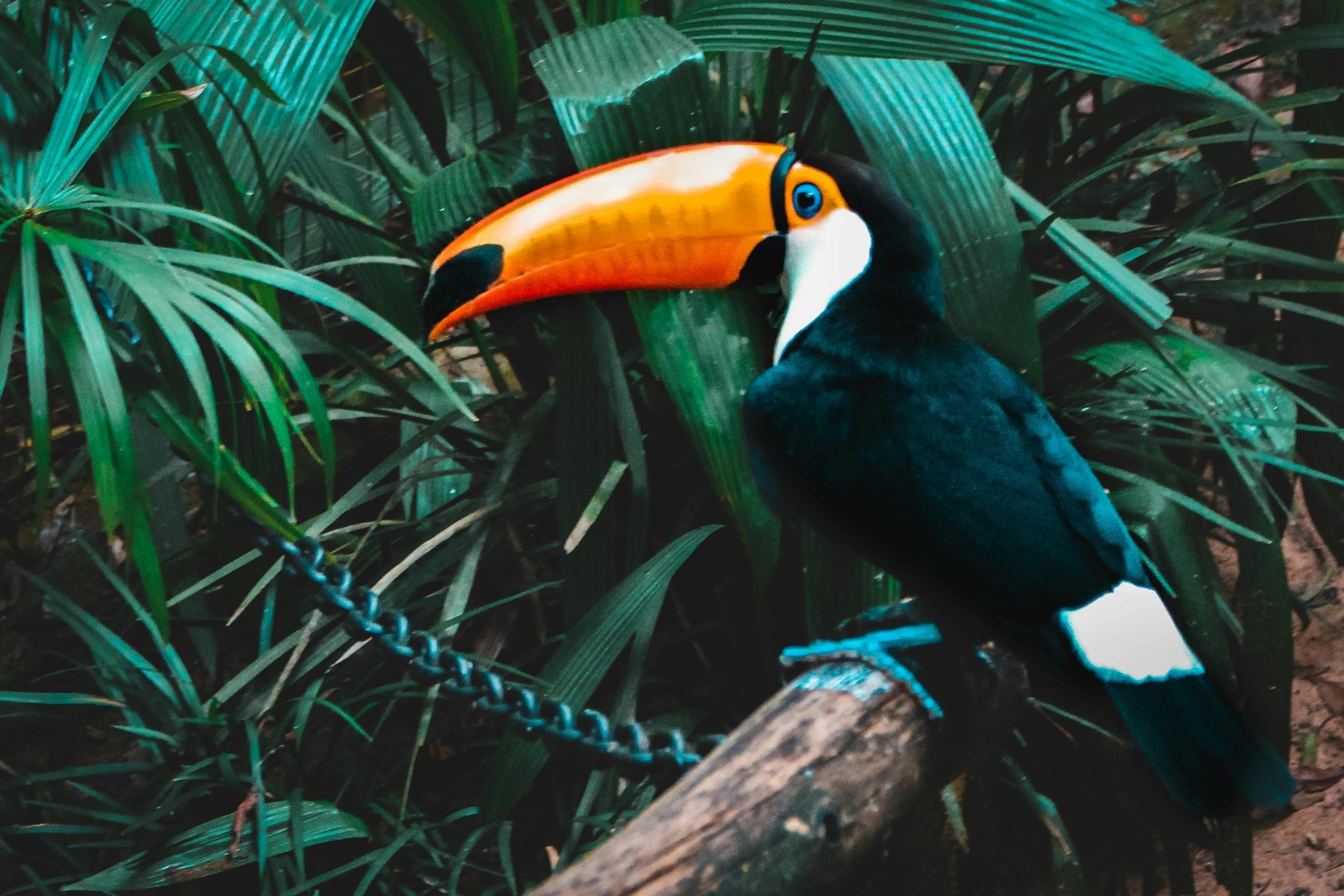

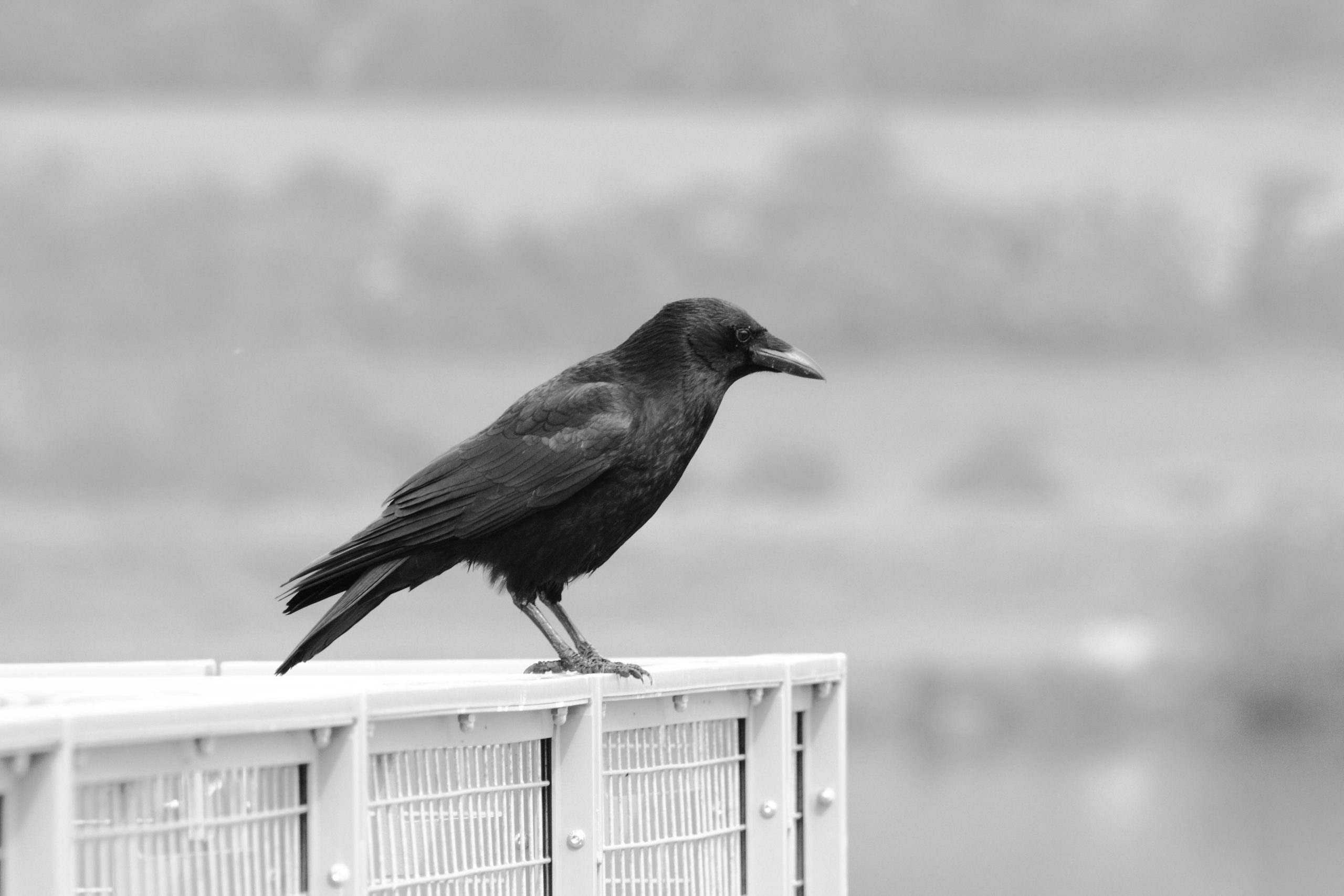
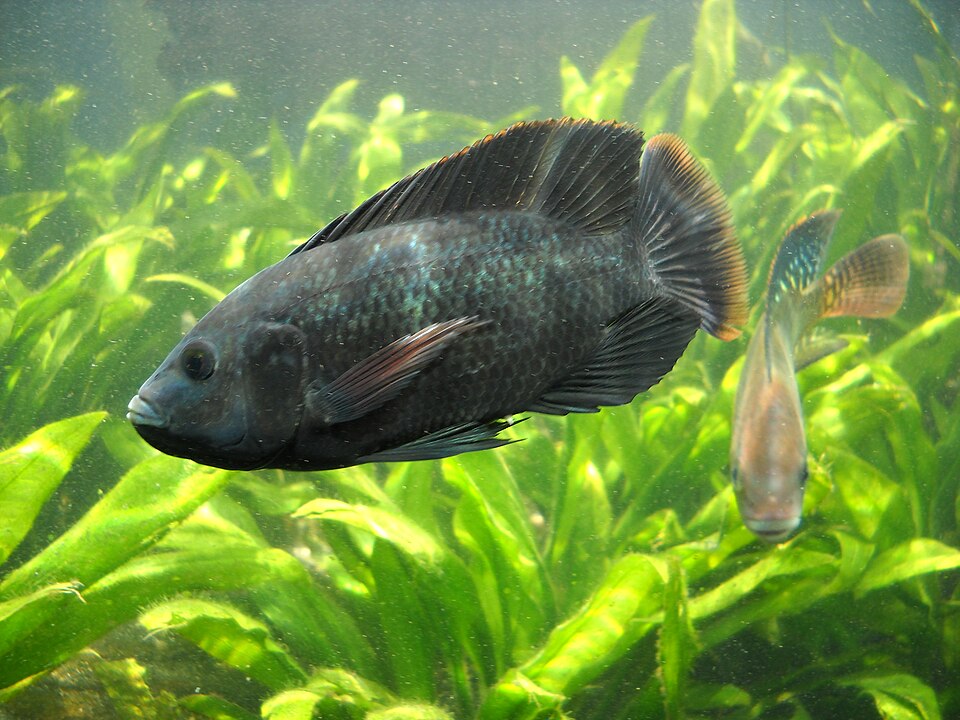
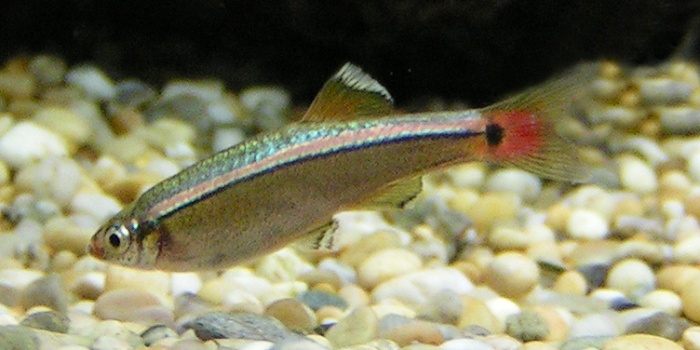
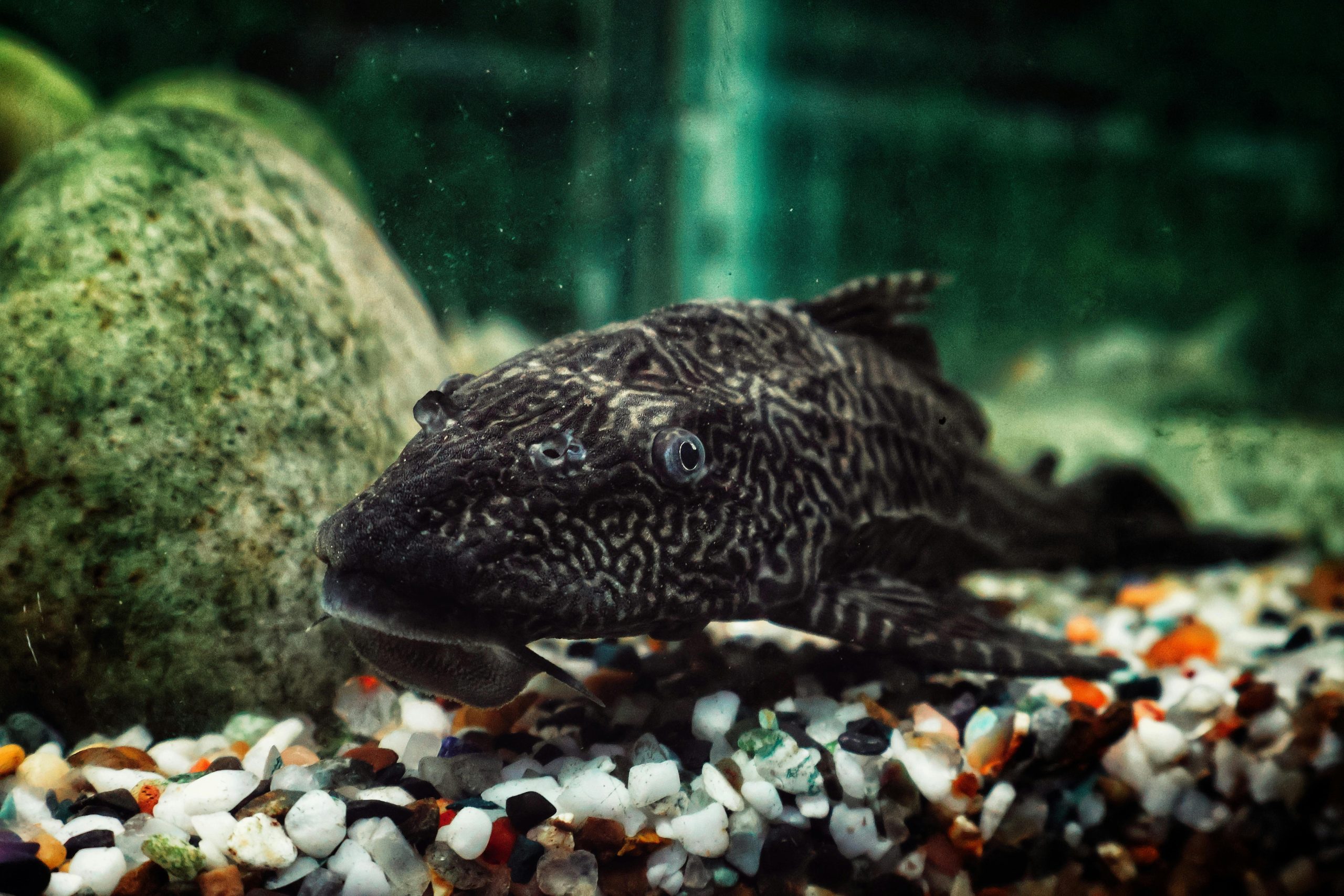
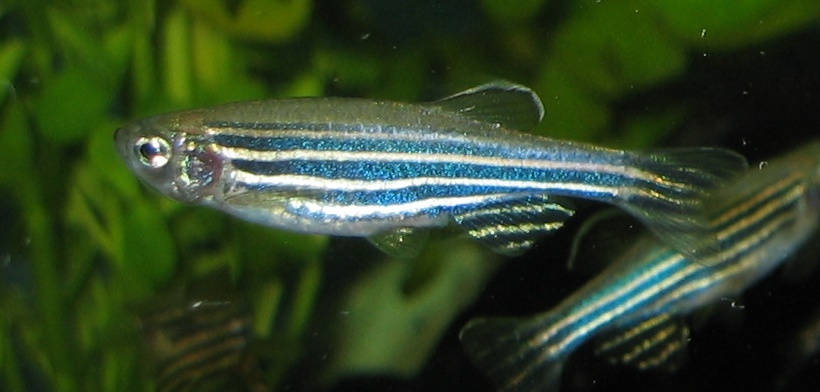
Leave a Reply